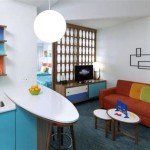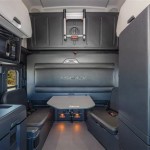Custom Sliding Doors: Interior Design Flexibility and Functionality
Interior sliding doors represent a versatile and frequently overlooked element in residential and commercial design. Moving beyond basic swinging doors, custom sliding doors offer a blend of space optimization, aesthetic enhancement, and functional adaptability. This article explores the various aspects of custom sliding doors for interior spaces, delving into design considerations, material choices, hardware options, and the overall benefits they bring to a living or working environment.
Unlike standard pre-fabricated doors, custom sliding doors are specifically designed and manufactured to meet the unique requirements of a particular space. This encompasses considerations such as door size, style, material, and hardware functionality. The result is a door that seamlessly integrates with the existing architecture and reflects the desired aesthetic of the interior.
The growing popularity of open-concept living has further fueled the demand for interior sliding doors. These doors allow for the creation of flexible spaces that can be easily reconfigured to suit different needs. They can divide a large room into smaller, more intimate zones or be opened fully to create a continuous, expansive area. This adaptability makes them ideal for modern homes and offices where versatility is paramount.
The design process for custom sliding doors typically begins with a thorough assessment of the space. This includes measuring the opening, identifying any structural constraints, and understanding the client's design preferences. Considerations are given to the overall style of the room, the existing color palette, and the desired level of privacy and sound insulation. Once these factors are established, the door's design and material selection can proceed.
Space Optimization and Flexible Design
One of the primary advantages of custom sliding doors is their ability to optimize space. Swinging doors require clearance to open and close, which can be a significant limitation in smaller rooms or areas with tight clearances. Sliding doors, on the other hand, operate within the plane of the wall, eliminating the need for swing space. This makes them particularly well-suited for closets, bathrooms, and other confined areas. The space saved can then be utilized for other purposes, such as furniture placement or increased storage.
Furthermore, custom sliding doors facilitate flexible design options. They can be used to create room dividers, separating living spaces from dining areas or home offices from bedrooms. When open, they create a sense of spaciousness and allow for easy flow of traffic. When closed, they provide privacy and create a more intimate atmosphere. This versatility makes them ideal for adaptable living spaces that can be easily reconfigured to suit different needs.
The flexibility extends to the door’s operation. Bypassing sliding doors consist of multiple panels that slide past each other, while pocket doors disappear entirely into the wall, creating a completely unobstructed opening. Barn doors, a popular style, provide a rustic aesthetic and can be an excellent focal point in a room. The choice of sliding mechanism depends on the specific requirements of the space and the desired design aesthetic.
Custom sliding doors can also enhance accessibility. By eliminating the swing arc of a traditional door, they improve maneuverability for individuals with mobility challenges. Wider openings can be created to accommodate wheelchairs and other assistive devices, promoting inclusivity and accessibility in the home.
Material Choices and Aesthetic Considerations
The selection of materials plays a crucial role in the overall aesthetic and functionality of custom sliding doors. A wide range of materials are available, each offering its own unique advantages and characteristics. Wood, glass, metal, and composite materials are commonly used, and the choice depends on factors such as desired appearance, durability, and budget.
Wood sliding doors exude warmth and natural beauty. They can be crafted from various wood species, such as oak, maple, cherry, and walnut, each with its own distinct grain pattern and color tone. Wood doors can be stained or painted to match the existing interior décor. Solid wood doors offer excellent insulation and soundproofing properties. However, wood is susceptible to moisture and temperature variations, which can cause warping or cracking if not properly treated.
Glass sliding doors provide a modern and elegant look. They allow natural light to flow freely between spaces, creating a bright and airy atmosphere. Various types of glass can be used, including clear glass, frosted glass, textured glass, and laminated glass. Frosted and textured glass offer increased privacy, while laminated glass provides enhanced safety and security. Glass doors can be framed with wood or metal, or they can be frameless for a minimalist aesthetic. The primary consideration with glass is its inherent lack of sound insulation compared to wood or solid core options.
Metal sliding doors offer a sleek and contemporary design. Aluminum and steel are commonly used materials, providing strength, durability, and resistance to corrosion. Metal doors can be powder-coated in a variety of colors to match the interior décor. They are often used in commercial settings but can also be incorporated into modern residential designs. Metal framed glass doors are a popular choice, combining the aesthetic appeal of glass with the structural integrity of metal.
Composite materials, such as medium-density fiberboard (MDF) and particleboard, offer a cost-effective alternative to solid wood. These materials can be veneered with wood or laminated with decorative surfaces. They are relatively stable and less prone to warping than solid wood. However, they are generally less durable and offer lower sound insulation properties. Composite materials are often used in budget-conscious projects.
Beyond the core material, surface treatments and finishes further customize the door's appearance. Stains, paints, and varnishes can be used to enhance the natural beauty of wood or create a specific color effect. Powder coating provides a durable and long-lasting finish for metal doors. Decorative films and etching techniques can be applied to glass to create unique patterns and designs.
Hardware Options and Functional Considerations
The hardware used on custom sliding doors is not merely functional but also contributes significantly to the overall aesthetic and ease of operation. The choice of tracks, rollers, handles, and locking mechanisms can impact the door's performance and appearance. It is critical to select hardware that is both durable and aesthetically pleasing.
Sliding door tracks are available in a variety of materials and styles. Aluminum tracks are lightweight and corrosion-resistant, while steel tracks offer greater strength and durability. Tracks can be surface-mounted or recessed into the floor or ceiling, depending on the desired aesthetic. The track system must be properly aligned and installed to ensure smooth and quiet operation.
Rollers are responsible for the smooth movement of the door along the track. High-quality rollers with ball bearings provide effortless and quiet operation. The weight capacity of the rollers must be appropriate for the weight of the door. Different roller designs are available, including top-hung rollers, bottom-rolling rollers, and concealed rollers. Top-hung rollers are typically used for barn doors and other decorative applications, while bottom-rolling rollers are more common in pocket doors and bypassing doors. Concealed rollers provide a clean and minimalist look.
Handles and pulls are essential for opening and closing the door. A wide variety of styles are available, ranging from simple minimalist designs to ornate decorative handles. The choice of handle should complement the overall design of the door and be comfortable to grip. Recessed pulls are often used in pocket doors to allow the door to slide completely into the wall cavity.
Locking mechanisms provide security and privacy. Standard latch mechanisms are suitable for interior doors, while more robust locking systems may be necessary for exterior doors or doors that require a higher level of security. Keyed locks, privacy locks, and deadbolts are all options to consider. The locking mechanism should be easy to operate and reliable.
Beyond the basic hardware, additional accessories can enhance the functionality of custom sliding doors. Soft-close mechanisms prevent the door from slamming shut, providing a smoother and quieter operation. Door guides keep the door aligned and prevent it from swaying. Weatherstripping can be used to seal gaps around the door, improving insulation and reducing drafts. These accessories contribute to the overall performance and longevity of the sliding door system.
In summary, custom sliding doors offer a multitude of benefits for interior spaces. They optimize space, facilitate flexible design options, enhance aesthetics, and improve accessibility. The selection of materials, hardware, and accessories allows for a high degree of customization, ensuring that the door meets the specific requirements of the space and reflects the desired design aesthetic. By carefully considering these factors, one can create a functional and visually appealing sliding door that enhances the overall living or working environment.

Sliding Interior Door Whole Chinese Supplier Oppein

Custom Made Diffe Stripes Design Modern Farmhouse Sliding Barn Door Contemporary Interior Doors Primed Only Singapore

S The Sliding Door Company

Barn Doors Any Size Hardware Header Included Glass Sliding Door Prairie Interior French Rustic Farmhouse Custom Modern Singapore

Moving Walls Custom Sliding Doors Made By Custommade

5 Custom Sliding Door Solutions Designs Ideas On Dornob

Design Sliding Doors Modern And Custom Made Laurameroni

S The Sliding Door Company

2024 Custom Interior Sliding Door With Glass Oppein

Custom Made Chevron Farmhouse Sliding Barn Door Contemporary Modern Interior Doors Primed Only Singapore








